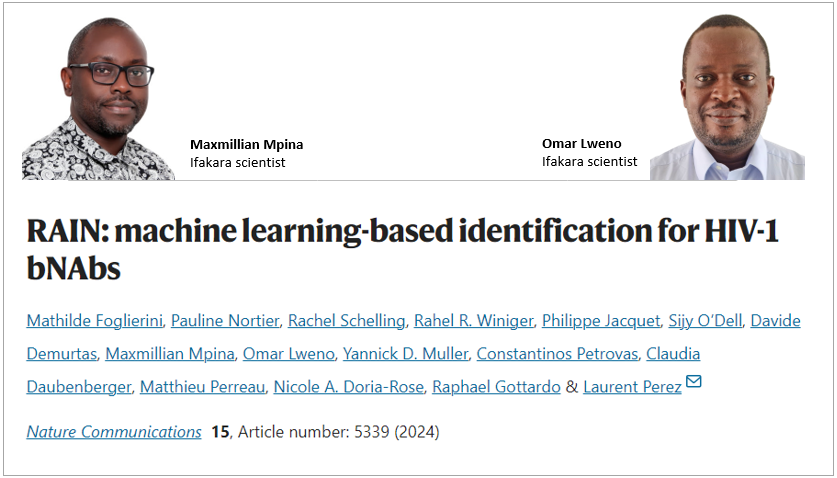
BREAKTHROUGH: New AI method quickly identifies HIV-fighting antibodies

A team of scientists from Switzerland, the USA and Tanzania, among them from Ifakara Health Institute, has developed a new method to help identify antibodies that can fight HIV-1, the virus that causes AIDS.
These antibodies, known as broadly neutralizing antibodies (bNAbs), are important because they can recognize and block different types of HIV from entering healthy cells, thereby preventing infections.
Despite their significance, the identification of these antibodies has been difficult and time-consuming. However, the development of a computational method called Rapid Automatic Identification of bNAbs (RAIN), which uses machine learning techniques to identify these antibodies from immune system data, promises to change the landscape of HIV-1 antibody discovery.
What is RAIN?
RAIN, which stands for Rapid Automatic Identification of bNAbs, uses artificial intelligence (AI) to quickly and accurately find antibodies from data about the immune system. Unlike traditional methods that usually use time-consuming and complex ways to identify these antibodies, RAIN uses a simpler approach with selected features from the antibody sequences, making the process much easier, faster and more accurate.
How does it work?
The scientists tested RAIN with immune system data from individuals who are immune to HIV-1. The method successfully identified different bNAbs that target a specific part of the HIV-1 virus, which is important for the virus’s entry into human cells.
Why it's important?
RAIN is a significant advancement in HIV-1 research. By making it easier and faster to find bNAbs, this method can help develop new treatments and preventive measures for HIV-1. Additionally, it also demonstrates how AI can be used to improve the diagnosis and treatment of various diseases, not just HIV-1.
“The RAIN approach can achieve a precision of 1 for almost all antigenic sites and can be applied easily on any immune repertoire or already isolated antibody sequences to identify HIV-1 bNAbs. To our knowledge, this study pioneers in silico identification of specific antibodies that could not have been identified by sequence alignment,” the scientists noted.
Moreover, they emphasize the significant breakthrough RAIN represents in identifying HIV-1 fighting antibodies stating, “In summary, our approach offers an innovative, straightforward method to search and identify antibodies in immune repertoires, accelerate antibody discovery, and might shed light on potentially unexplored mechanisms of HIV-1 immune escape.”
Contributions from Ifakara scientists
Two Ifakara scientists, Maxmillian Mpina and Omar Lweno, contributed to this study. They collaborated with colleagues from the University of Lausanne, the National Institute of Allergy and Infectious Diseases, the National Institutes of Health, Ecole Polytechnique Fédérale de Lausanne, Lausanne University Hospital, and Swiss TPH.
Read the publication here.
